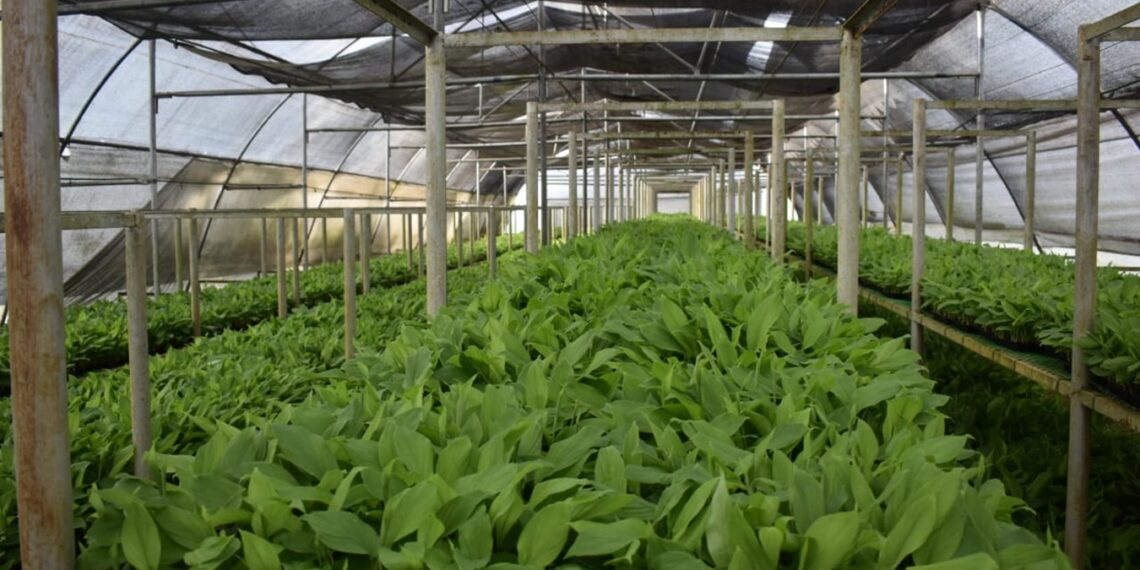SHILLONG: The Registrar of Geographical Indications (GI) in Chennai has formally bestowed the esteemed GI tag upon Lakadong turmeric.
This recognition stands as an achievement for the dedicated farmers of Lakadong, a small hamlet in the West Jaintia Hills, solidifying their region as the bonafide origin of the world’s premier turmeric.
The proclamation, disclosed November 29, signifies the culmination of a four-year odyssey that commenced in October 2019.
Under the visionary leadership of Chairman of the Meghalaya Farmers’ (Empowerment) Commission, KN Kumar, and P Sampath Kumar, IAS, then Commissioner & Secretary, Agriculture, a committee was constituted by the Meghalaya Institute of Entrepreneurship (MIE).
The rigorous process involved collaboration with the Directorates of Horticulture/Agriculture, District Horticulture Officers of East and West Jaintia Hills, ICAR Scientists, and farmer representatives.
The dedication of Demandson Lyngdoh, MAS, the Project Officer of Mission Lakadong, played a crucial role in gathering the necessary information and documents for the case statement.
After several hearings and clarifications, the Registrar of GI, Chennai, officially recognised and awarded the GI tag to the turmeric.
Lakadong turmeric’s popularity, especially post-COVID, has led to mislabelling and selling of turmeric products from other regions as Lakadong, causing confusion for consumers and losses for local farmers.
The GI tag provides a unique selling point, differentiating Lakadong turmeric in the market and safeguarding the interests of local farmers.
Geographical Indication not only benefits small farmers by offering a unique selling point but also protects traditional methods and knowledge.
It ensures that only those within the designated geographical area, using the traditional methods, can use the GI label, preserving local heritage and agricultural practices.
Moreover, GI status opens new markets, both domestically and internationally, enhancing the visibility and appeal of Lakadong turmeric.
The recognition can significantly contribute to rural development by promoting local products, securing better prices, and stimulating local economies.















